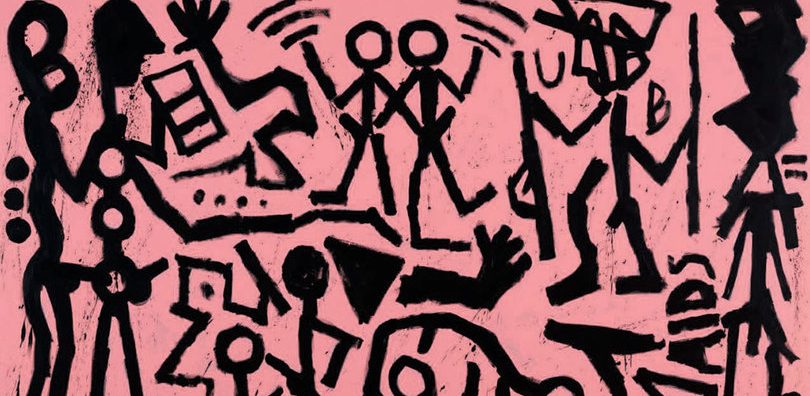On Sunday, Poland goes to the polls after a bitter presidential election campaign. As part of his election strategy, the incumbent, president Andrzej Duda, has whipped up a culture war with LGBT people firmly in the firing line. The centrepiece policy for the right-wing populist, who is allied with the ruling Law and Justice party (PiS), is the so-called ‘family card’, a suite of proposals promising to protect Poles from ‘LGBT ideology’, including a ban on teaching LGBT issues in schools and a pledge to not allow gay couples to marry. Oliver Basciano spoke to artist and activist Karol Radziszewski ahead of the vote.
ArtReview: How are you?
Karol Radziszewski: I’m quite emotional because just one hour ago, I learned that another young queer person died by suicide in Poland [Michał Demski, who was 30]. People are constantly talking about homophobia, but when you suddenly see something like that in the news it makes me so sad and angry.
AR That’s awful. In Warsaw, or…
KR No, he lived in a small town in the north of Poland. It happened two weeks ago, but today an interview was published with his mother.
AR As part of his election campaign Andrzej Duda has been whipping up a culture war targeting LGBT people. Does it feel noticeably more tense or dangerous?
KR I’m in a privileged position of being an adult and an artist who can afford to travel abroad or be in my own home avoiding situations in which you might encounter real aggression – although I’ve been shouted at on the street many times. For these younger people living with their families, or in smaller cities, it’s different. The tension is really high.
You’d think because Poland is a European Union country, in the modern world, nothing really bad could happen, but the rhetoric of the politicians is encouraging open homophobia. For the younger people it is really hard to deal with that, it’s really dangerous.
AR Can you tell me a bit about the so-called ‘family card’?
KR Basically, it’s a proposed law banning sexual education for teenagers and forbidding anything that ‘promotes LGBT ideology’ in public institutions. If you are openly queer, or making work that addresses queer identity, it marks the end of your career in state museums. That’s literally what this policy dictates.
Poland has seen progress in the last 15 years but systemic homophobia and religion still influences everything. To be elected, politicians on the right have to get the support of the Church to which there will always be a debt. One of those debts is these kinds of ideological campaigns.
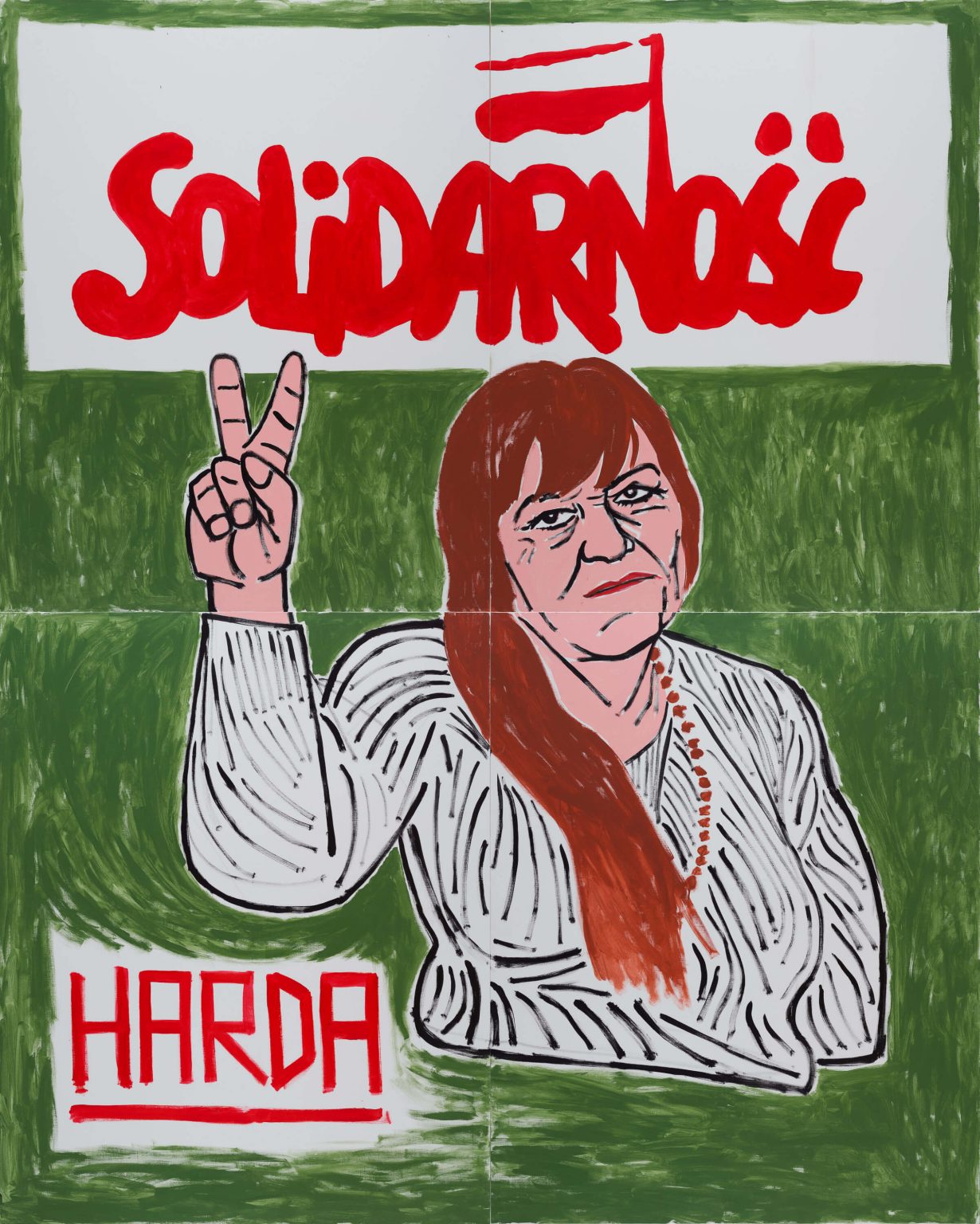
AR So if this law passes, a show like the one you had earlier this year at Ujazdowski Castle would never be commissioned?
KR I think it would be easy to say it’s LGBT propaganda. Sometimes people ask me how much censorship I experience in Poland, but it’s hard to answer because most of the time, I’m not aware of it: people are making these decisions private. A director might say ‘we’re not putting him in the programme, we don’t need the trouble’ and I’d never hear of it. Polish art in the 1990s was very provocative and openly pushing taboos, it was attacked by the press, and it was confrontational. Now they’re trying to avoid this open censorship.
AR What effect would this new law have on non-state museums, city museums, or even private institutions?
KR It truly depends on the individuals involved. One of the city galleries in Lublin, quite a conservative city, are staging an exhibition to protest Duda’s homophobic rhetoric. They are risking the budget by doing this, but they are doing it anyway. It really depends on the particular directors: if they want to risk their careers, if they’re afraid or not.
AR If you grow up in Warsaw you probably have more access to gay culture than if you grow up in a tiny town, where the local gallery or library could be the one space offering a window to the world. However some 100 municipalities, encompassing about a third of the country, have already declared themselves ‘LGBT-free zones’.
KR I was born in Białystok, and lived there until I came to Warsaw to study aged 18. Białystok is the most homophobic city, the most Catholic place in the northeast of Poland, so I understand that for the queer person outside the capital, and the parents of that person, there are not any local resources, no role models readily available or positive examples of how to behave. My first exposure to gay culture was through Hollywood movies. This however feeds the right-wing idea that homosexuality comes from the West. That the European Union is promoting sodomy and ‘we have to protect our children.’ In Poland, Ukraine, Belarus, Bulgaria, Romania, I hear this same statement.
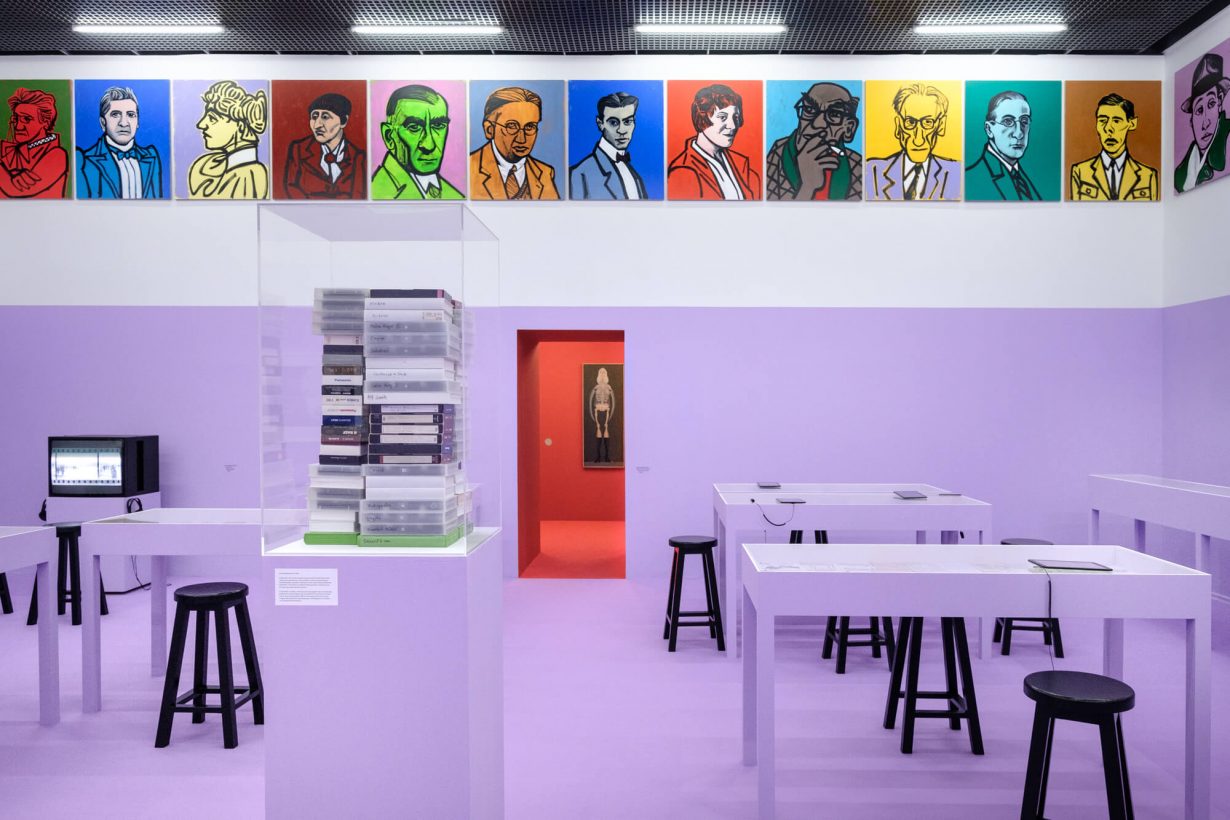
AR Can you tell me about the Queer Archives Institute?
KR Besides being active as a citizen and fighting for civil rights and marching and signing letters, it’s also important to use the privilege and the position of being an artist. My early work focused on male homosexuality, it was very explicit, very sexual, and dealt with my private identity, with issues concerning my family and the Catholic Church.
When I graduated in 2005, I made a coming-out show titled Fags. It was described as the first openly gay homosexual show in the history of Poland, which perhaps shows you how recent the idea of queer culture is here. The same year, I also started to publish DIK Fagazine, a magazine that relates to masculinity and homosexuality in the post-communist countries. Through that I started to collect all these stories, all these interviews with people from across the region relating to lost queer histories. I became interested in the past, and how you could talk about it. Latterly I’ve used my work to rewrite or revisit the historical [heteronormative] narratives of Poland. I’m 40 now, so I grew up as communism gave way to turbo-capitalism. I’m really aware of how the past is constructed and that the way they teach us history is not neutral. In 2015, I decided to summarize all of this research into the Queer Archives Institute, which involves LGBT artists, activists, academics across the post-Soviet countries. Each contributor has a much deeper understanding of their own local history, but my idea was to connect all of that in a more general way, to translate it into English, and make it more transnational.
AR Through this you were able to demonstrate homosexuality is not a Western ‘import’ however absurd that idea might be.
KR That we are not just influenced by the perverted West! It was also interesting to think about it in terms of post-colonial theory. Our activism is learned through reading about the Stonewall Riots, the rainbow flag – these Western symbols that are supplanted to the East. Instead here we are collecting local names, stories, dates, different dynamics that are important to build our own queer narratives.
When gender and queer studies started in Poland at the universities, they literally used the English words. It was ‘queer studies.’ That was a kind of masking. It was important that it started and gave the theory for the academics to work with but at the same time it kept it niche, it kept our own queer history hidden.
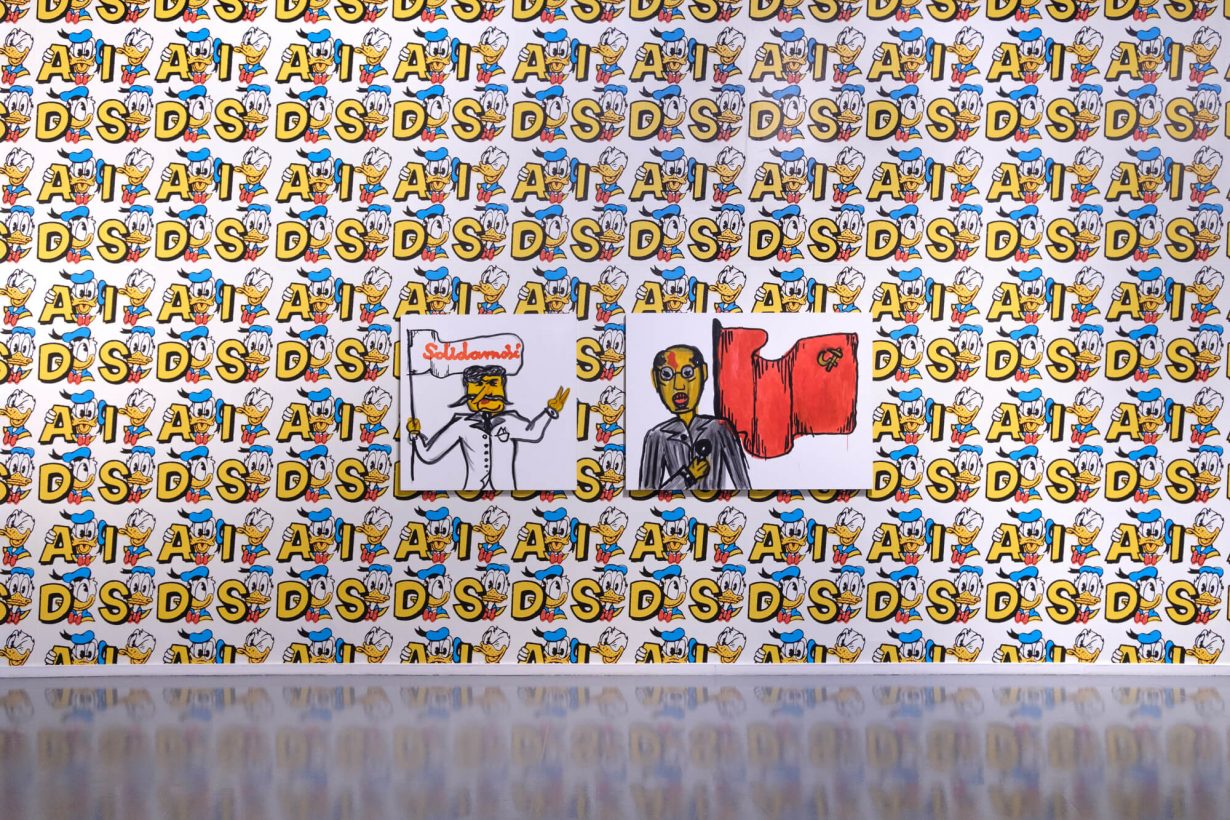
AR One of these forgotten histories was the Hyacinth campaign, which you’ve made a series of paintings about.
KR In communist Poland in 1985, ’86 and ’87, there were several police actions against homosexuals. The idea behind Operation Hyacinth was to collect data concerning male homosexuals. Since the Polish Penal Code of 1932 homosexuality has not been illegal in Poland and the authorities claimed their survey was a means of protecting gays during the HIV/AIDS crisis, as well as from the robbery and crimes. In fact, they were visiting men at their homes and offices and forcing them to sign a card stating their homosexuality alongside their name and particulars, as well a pledge that they would never have sex with minors. All this data was later used to blackmail the victims and force them to work with the secret police. That story was completely unknown to young people here. I’m trying to also paint and describe these events to inspire the other people to look at this history.
3 images
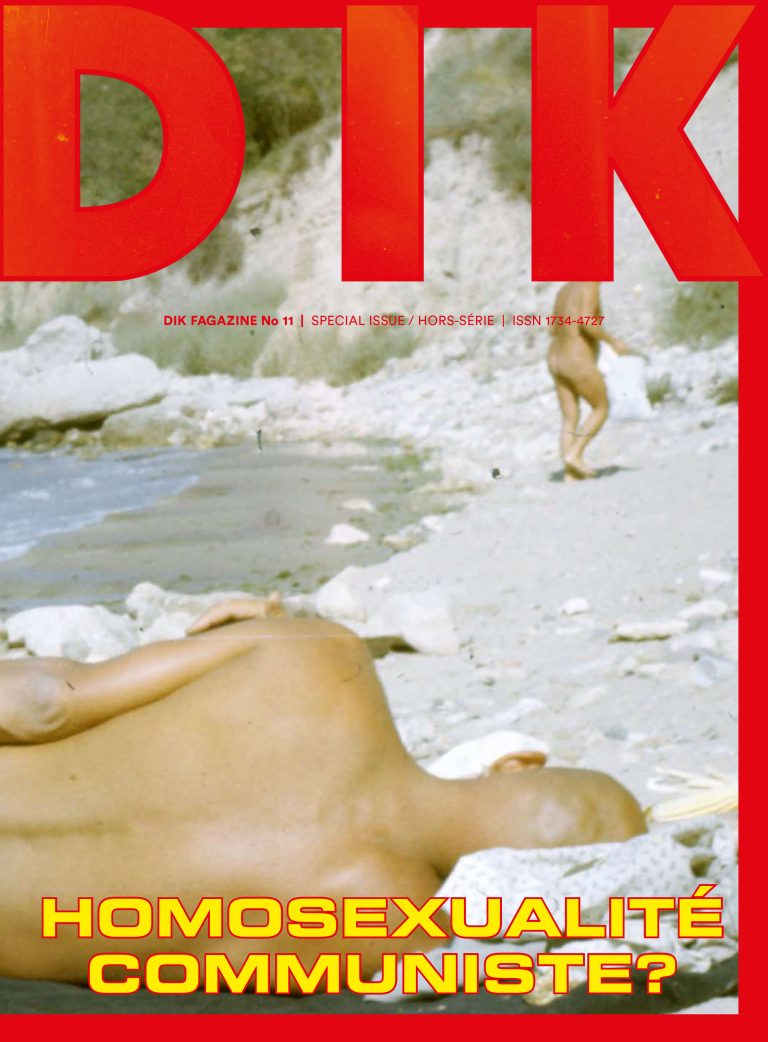
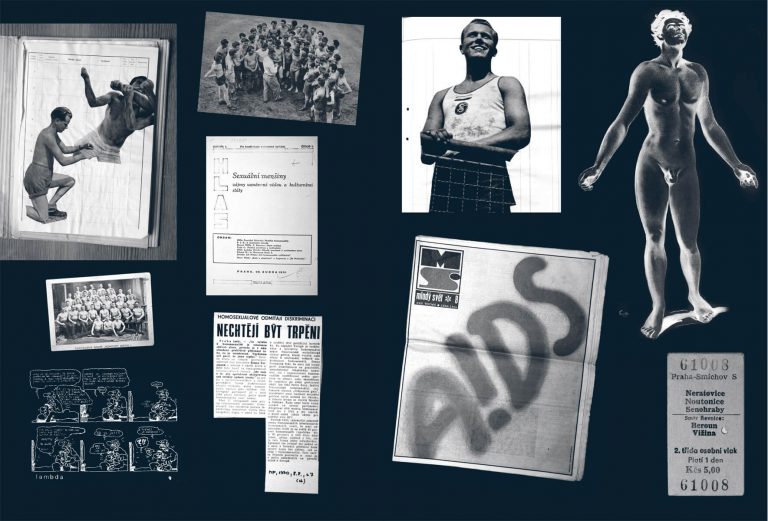
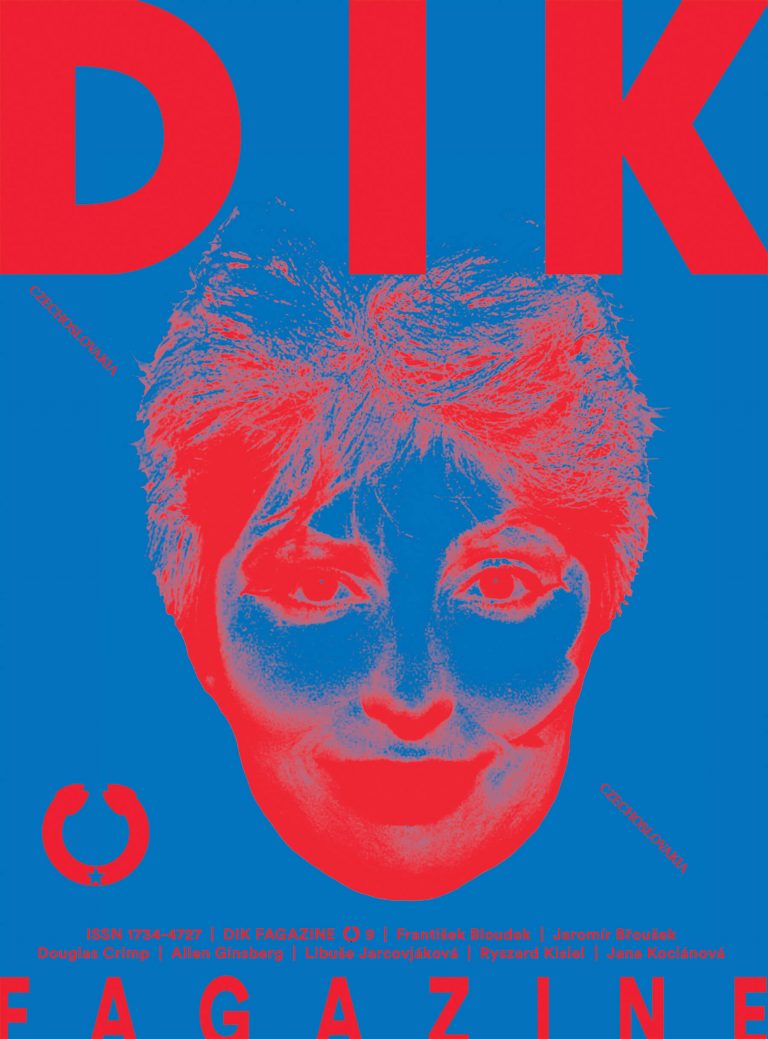
AR When you started the magazine, DIK Fagazine, how did you distribute it? Why did you want to use the format of a zine to tell these stories?
KR I was obsessed with Andy Warhol, with Interview magazine. I wanted to mix art with gay erotica. It was written in both Polish and English and started to be recognised in Berlin, London, Paris. We started doing parties, mostly in Berlin, but also in London several times. It started to build a community. Initially the institutions in Poland refused to sell it, but, after 15 years, the major museums now stock it. That was important. If you are a young queer person in Poland going to the major museum in the capital of Poland, and you see the Polish gay art paper alongside the western ones, it gives you this kind of empowerment.
AR If this law goes through and it gets worse, could you see yourself having to leave Poland?
KR Every year, I’m asking my partner if it’s the moment that we leave Poland. So far, I can handle this constant conflict but it’s getting harder and harder. I also don’t want this pervasive homophobia to get in the way of a wider perspective as an artist either. If I did not travel so much, I would leave immediately I think.
